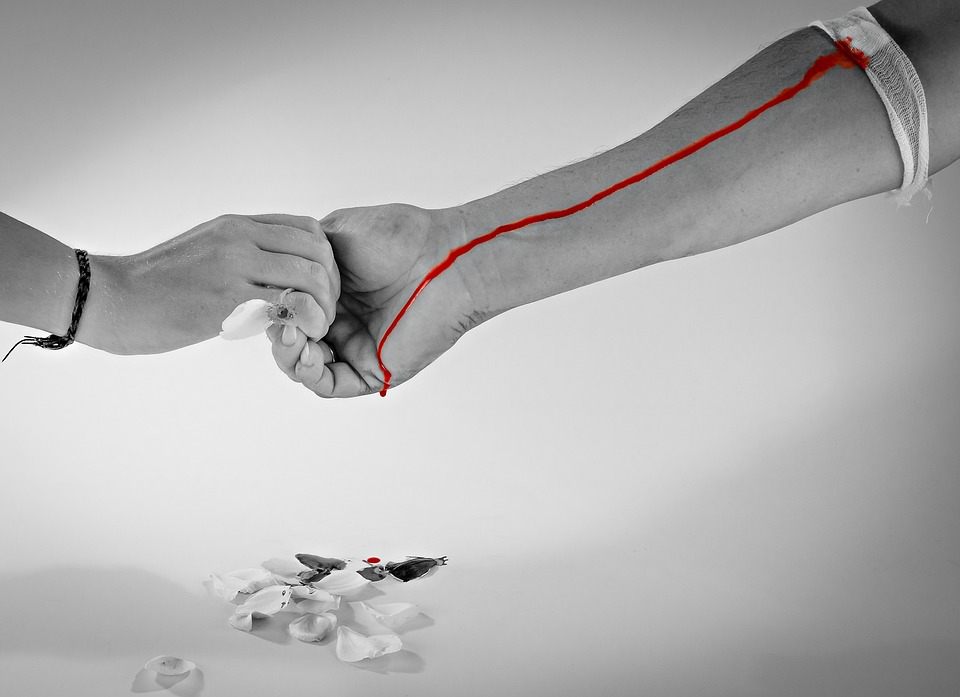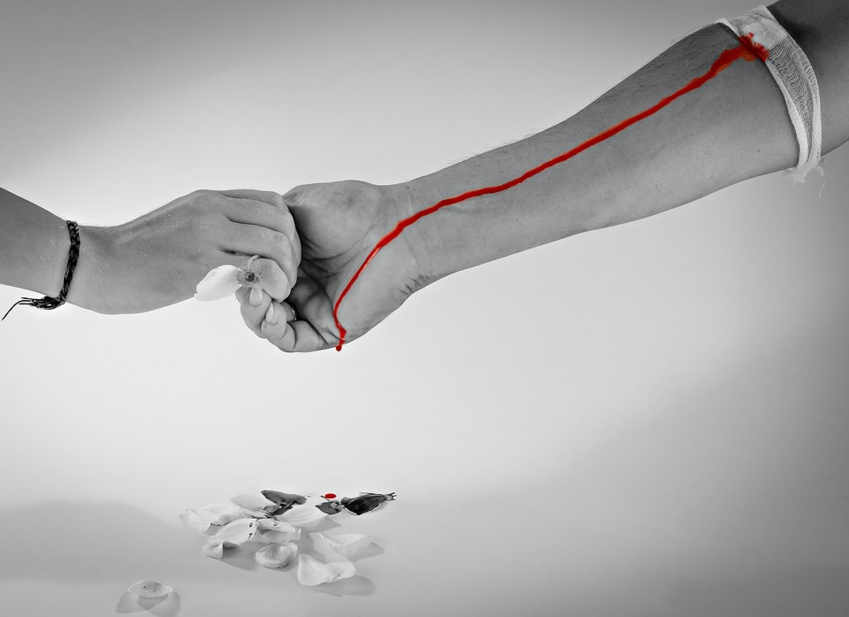Abbott and Blood Centers of America have introduced a novel new mixed reality experience for use during blood donation.
The mixed reality technology is an immersive digital experience that is intended to improve the blood donation process, attract new donors, and inspire a younger generation to donate blood. The initiative aims to address the global challenge of ensuring a reliable blood supply.
"This innovative use of mixed reality is the most recent example of how Abbott is creating leading-edge technology to address a key health care need in the world – maintaining the blood supply," said Alex Carterson, divisional vice president, medical, scientific and clinical affairs, Abbott.
"Not only is it an immersive and unique use of mixed reality controlled completely through eye tracking, it's a high-tech and creative way to improve the donation experience and make it more appealing for people to participate."
The mixed reality experience enables blood donation professionals to conduct donations safely and interact with donors at every stage of the process. During donation, donors' eyes are always visible to ensure constant monitoring and evaluation. Participants enter a digital world while remaining fully aware of their surroundings by wearing lightweight mixed reality headsets. This ensures a seamless, convenient, and safe donation.
Abbott, a global leader in blood and plasma screening, is collaborating with Blood Centers of America, the largest blood supplier network in the United States, to introduce this new technology, which was first shown at the CES (Consumer Electronics Show) in Las Vegas.
The mixed reality experience was created based on research that found that natural settings are the most preferred environment for blood donors. Participants plant seeds that grow into colorful trees and flowers in a whimsical garden while listening to soothing music.
The experience is currently being tested in a limited number of Blood Centers of America locations across the country.
Over the last decade, one of the most significant challenges to the sustainability of our nation's blood supply has been the loss of a significant portion of donors under the age of 30. Only 3% of the US population donates blood each year on average, and a recent poll of US adults revealed that only 15% of 18-to-34-year-olds will donate blood in 2020.
"We're always looking for ways to cultivate the next generation of blood donors and find younger people interested in giving," said Harpreet K. Sandhu, CEO, Stanford Blood Center (Palo Alto, Calif.) and chairperson of Blood Centers of America.
"Some people are hesitant to donate for a variety of reasons or just don't think about giving blood. Since the need for blood is constant, we're continually looking for smart new ways that will appeal to people who have never donated before or may be apprehensive. The mixed reality experience is a terrific way to get those people interested in participating. It adds a fun, interactive element to donation and it's easy and convenient for blood centers to use."
Mixed reality is similar to virtual reality in that users can see the real world around them while immersed in a digital world, whereas virtual reality only allows users to experience the digital world. The mixed reality journey makes use of Microsoft HoloLens 2, the world's first self-contained holographic computer, which allows for hands-free interaction with three-dimensional digital objects as well as a library of applications. Before using the headsets and the mixed reality world, donors are given a quick tutorial. The headsets are easily integrated into the donation process and can be adjusted for each donor's comfort.
"At Microsoft, we've seen the impact digital technologies can have in healthcare – from empowering health team collaboration and increasing clinician productivity to enhancing the patient experience," said David C. Rhew, M.D., global chief medical officer and vice president of healthcare, Microsoft. "We're pleased to see Abbott embrace mixed reality to create a positive experience for blood donors and to encourage the public to donate."
BCA and Abbott are asking people to pledge to donate blood now and sign up to be notified when the mixed reality experience becomes available in their area as part of the effort to launch this new technology.
If you would like to learn more about becoming a regular donor and pledge to donate, do click here.
The mixed reality technology is an immersive digital experience that is intended to improve the blood donation process, attract new donors, and inspire a younger generation to donate blood. The initiative aims to address the global challenge of ensuring a reliable blood supply.
"This innovative use of mixed reality is the most recent example of how Abbott is creating leading-edge technology to address a key health care need in the world – maintaining the blood supply," said Alex Carterson, divisional vice president, medical, scientific and clinical affairs, Abbott.
"Not only is it an immersive and unique use of mixed reality controlled completely through eye tracking, it's a high-tech and creative way to improve the donation experience and make it more appealing for people to participate."
The mixed reality experience enables blood donation professionals to conduct donations safely and interact with donors at every stage of the process. During donation, donors' eyes are always visible to ensure constant monitoring and evaluation. Participants enter a digital world while remaining fully aware of their surroundings by wearing lightweight mixed reality headsets. This ensures a seamless, convenient, and safe donation.
Abbott, a global leader in blood and plasma screening, is collaborating with Blood Centers of America, the largest blood supplier network in the United States, to introduce this new technology, which was first shown at the CES (Consumer Electronics Show) in Las Vegas.
The mixed reality experience was created based on research that found that natural settings are the most preferred environment for blood donors. Participants plant seeds that grow into colorful trees and flowers in a whimsical garden while listening to soothing music.
The experience is currently being tested in a limited number of Blood Centers of America locations across the country.
Over the last decade, one of the most significant challenges to the sustainability of our nation's blood supply has been the loss of a significant portion of donors under the age of 30. Only 3% of the US population donates blood each year on average, and a recent poll of US adults revealed that only 15% of 18-to-34-year-olds will donate blood in 2020.
"We're always looking for ways to cultivate the next generation of blood donors and find younger people interested in giving," said Harpreet K. Sandhu, CEO, Stanford Blood Center (Palo Alto, Calif.) and chairperson of Blood Centers of America.
"Some people are hesitant to donate for a variety of reasons or just don't think about giving blood. Since the need for blood is constant, we're continually looking for smart new ways that will appeal to people who have never donated before or may be apprehensive. The mixed reality experience is a terrific way to get those people interested in participating. It adds a fun, interactive element to donation and it's easy and convenient for blood centers to use."
Mixed reality is similar to virtual reality in that users can see the real world around them while immersed in a digital world, whereas virtual reality only allows users to experience the digital world. The mixed reality journey makes use of Microsoft HoloLens 2, the world's first self-contained holographic computer, which allows for hands-free interaction with three-dimensional digital objects as well as a library of applications. Before using the headsets and the mixed reality world, donors are given a quick tutorial. The headsets are easily integrated into the donation process and can be adjusted for each donor's comfort.
"At Microsoft, we've seen the impact digital technologies can have in healthcare – from empowering health team collaboration and increasing clinician productivity to enhancing the patient experience," said David C. Rhew, M.D., global chief medical officer and vice president of healthcare, Microsoft. "We're pleased to see Abbott embrace mixed reality to create a positive experience for blood donors and to encourage the public to donate."
BCA and Abbott are asking people to pledge to donate blood now and sign up to be notified when the mixed reality experience becomes available in their area as part of the effort to launch this new technology.
If you would like to learn more about becoming a regular donor and pledge to donate, do click here.


 Abbott introduces mixed reality experience during blood donation
Abbott introduces mixed reality experience during blood donation





 Companies
Companies